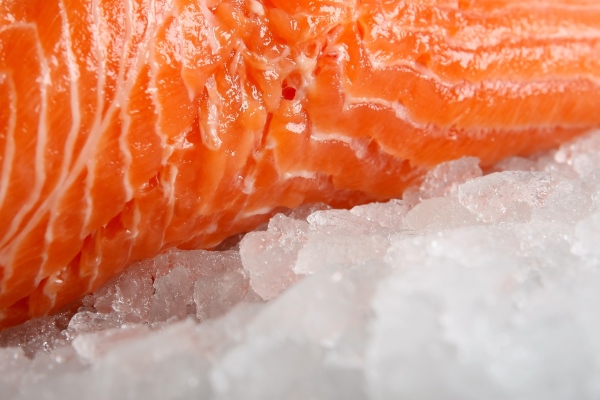
Almost half of the seafood in grocery stores in the Canadian capital Ottawa is fraudulently mislabelled, with a third considered species substitution, a new report reveals.
Published by the advocacy group Oceana Canada, the report presents the results of seafood sample tests, with the findings highlighting “widespread misrepresentation”, notably in seafood mislabelling and species substitution.
“This was the first time this type of study has ever been conducted in Ottawa and the results were staggering, revealing widespread seafood misrepresentation in our capital,” the report said.
According to the testing of seafood samples from popular Ottawa grocery stores and restaurants during July this year, nearly half of the samples – 45 out of 98 – were mislabelled, when tested against Canadian Food Inspection Agency’s (CFIA) acceptable market names for seafood in Canada. This increased to 51 per cent of samples obtained from non-sushi restaurants and 68 per cent for samples from sushi vendors; 10 of the 12 sushi vendors tested were found to be mislabelling seafood.
Seafood fraud and mislabelling were found at 16 of the 22 restaurants tested, including the most popular and prestigious ones, as well as those known for serving sustainable seafood. Meanwhile, grocery stores had lower rates of fraud and mislabelling, with 18 per cent of samples mislabelled, from four of the ten grocery stores tested.
The investigation also found that farmed fish was sold as wild-caught; cheaper alternatives substituted for expensive varieties; fish that can cause illness substituted for safe fish; and threatened species being sold that aren’t on CFIA’s list of approved species.
Oceana Canada’s testing revealed that 80 per cent of the white tuna samples collected from Ottawa sushi restaurants were actually escolar, an oily whitefish that can cause acute gastrointestinal symptoms where individuals who eat more than a few ounces risk diarrhoea, vomiting and nausea. The fish is banned in Japan, South Korea and Italy. Sushi restaurants were also found to be frequently serving Japanese amberjack, which contains the toxin ciguatera, mislabelled as Hamachi.
The investigation also found fraud cases that generated significant profit margins – cheap southern blue whiting, for instance, was sold as premium-priced Atlantic cod, which is normally 4.5 times more expensive.
The report criticised the Canadian regulatory landscape – including lack of traceability, inadequate enforcement and inspection, insufficient import requirements and poor labelling standards – which it said increased opportunities for fraud.
“An increasing amount of Canada’s seafood is shipped from overseas – estimates suggest up to 80 per cent of what is consumed in Canada may be imported. This seafood follows a complex path from a fishing vessel to our plate, with a risk of fraud and mislabelling at each step along the way,” the report said, noting that more than 900 different seafood species are sold in Canada, making it more difficult for consumers to know what they are eating.
“This ‘bait and switch’ impacts public health and safety, cheats consumers, hurts honest, law-abiding fishers and seafood businesses and undermines the environmental and economic sustainability of fisheries and fish populations. It can even mask global human rights abuses by creating a market for illegally caught fish,” the report added.
Generally, seafood supply chains consist of five to seven stages, which is more than for other food products. Seafood is also increasingly processed as it travels through the supply chain, with the removal of skin, head and other parts that can be used for identification, which increases the likelihood of fraud, the report said.
Common mislabelling includes buying cod but getting catfish or pollock, buying wild Pacific salmon but getting farmed Atlantic salmon, and buying white tuna but getting escolar instead.
“Seafood fraud can be prevented through full chain traceability, which means tracking fish through every step from the water to our plate,” the report said. “The European Union, the largest importer of seafood in the world, has implemented full chain traceability as well as stringent catch documentation and comprehensive labelling requirements. The US is moving quickly in this direction. Unfortunately, Canada lags behind and the federal government’s current efforts to combat seafood fraud are not sufficient to address the key drivers of this phenomenon.”
The report concluded with recommendations saying: “To most effectively fight seafood fraud and illegal fishing, Canada must establish a comprehensive system that harmonises with its major trading partners and builds more transparency into seafood supply chains by requiring full chain traceability, catch documentation and improved consumer information.”
Oceana Canada now plans to test more seafood samples in other Canadian cities to better understand the extent of seafood fraud nationally.
©
SecuringIndustry.com





